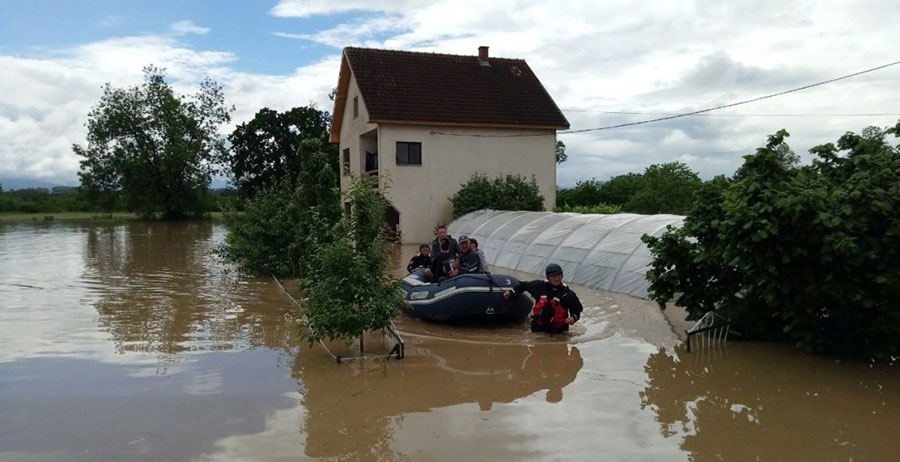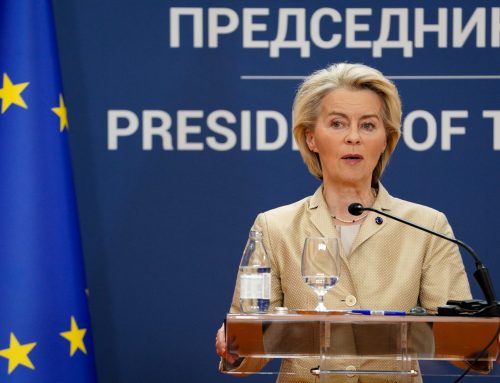In response to the floods, which affected Serbia earlier this month, the European Commission provided €90,000 in humanitarian funding to assist the most affected population.
This EU-funding supports the Red Cross of Serbia in delivering much needed timely relief assistance, including safe drinking water, food, hygiene and household items as well as psychosocial support. It will also support the rehabilitation of the damaged houses and cash assistance.
The humanitarian aid will directly benefit 7,650 individuals in 13 municipalities in the central and western part of Serbia. The assistance will prioritise the most vulnerable groups such as the elderly, women-headed households or other groups most at risk.
The funding is part of the EU’s overall contribution to the Disaster Relief Emergency Fund (DREF) of the International Federation of Red Cross and Red Crescent Societies (IFRC).
On 3 June, the Republic of Serbia was hit by floods and flash floods due to the heavy rainfall. In total 11,650 people, 20 cities and municipalities in the central and western parts of Serbia were reportedly affected. Several hundreds of hectares of agricultural land were destroyed; 20 municipalities declared a state of emergency. The floods caused damage to households and basic infrastructure; many needed to be evacuated. Due to the collapsed water systems, people are in need of drinking water. Other needs include food, hygiene and household items as well as assistance for the rehabilitation of houses and restoration of livelihoods.
Background
The European Union and its Member States are the world’s leading donor of humanitarian aid. Relief assistance is an expression of European solidarity with people in need all around the world. It aims to save lives, prevent and alleviate human suffering, and safeguard the integrity and human dignity of populations affected by natural disasters and man-made crises.
Through its Civil Protection and Humanitarian aid Operations department, the European Commission helps millions of victims of conflict and disasters every year. With headquarters in Brussels and a global network of field offices, the EU provides assistance to the most vulnerable people on the basis of humanitarian needs.
The European Union has signed a €3 million humanitarian delegation agreement with the International Federation of Red Cross and Red Crescent Societies (IFRC) to support the Federation’s Disaster Relief Emergency Fund (DREF). Funds from the DREF are mainly allocated to “small-scale” disasters – those that do not give rise to a formal international appeal.
The Disaster Relief Emergency Fund was established in 1985 and is supported by contributions from donors. Each time a National Red Cross or Red Crescent Society needs immediate financial support to respond to a disaster, it can request funds from the DREF. For small-scale disasters, the IFRC allocates grants from the Fund, which can then be replenished by the donors. The delegation agreement between the IFRC and ECHO enables the latter to replenish the DREF for agreed operations (that fit in with its humanitarian mandate) up to a total of €3 million.
For further information, please contact:
Mathias Eick on Mathias.Eick@echofield.eu




